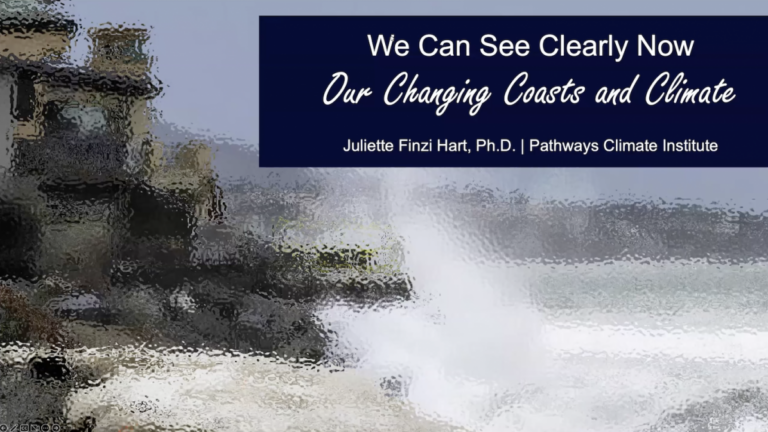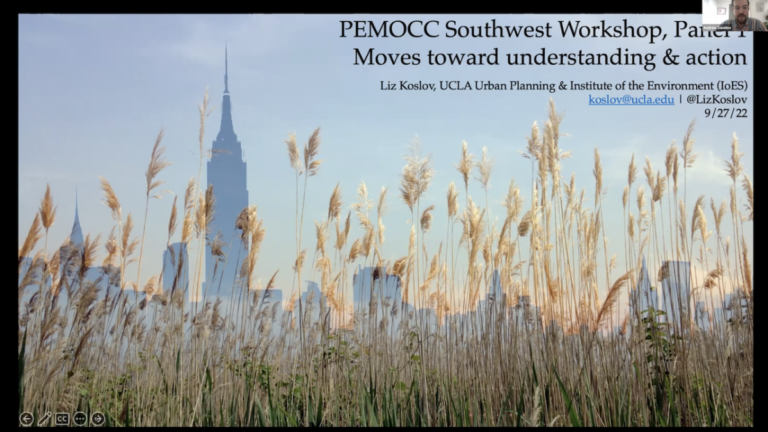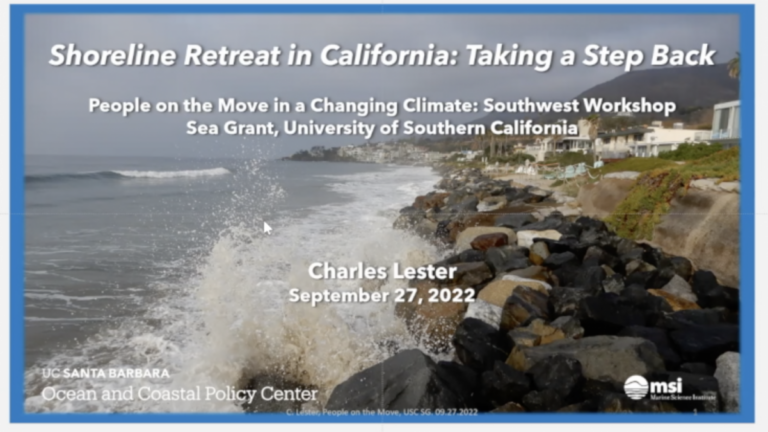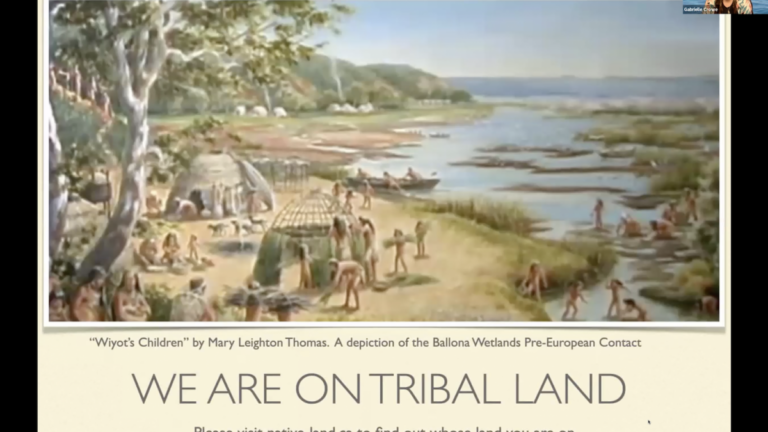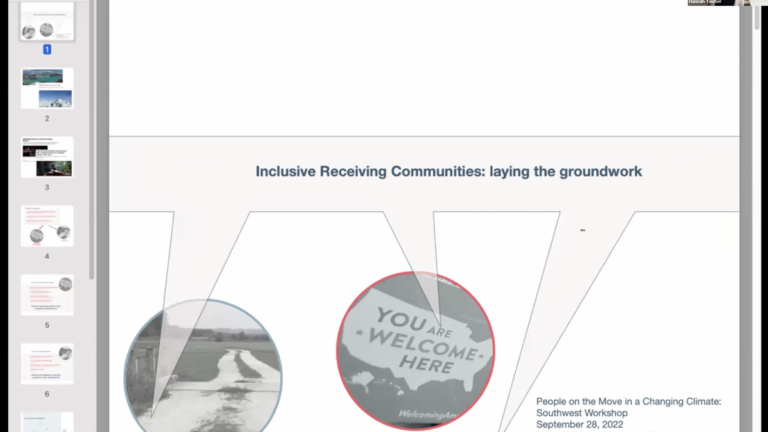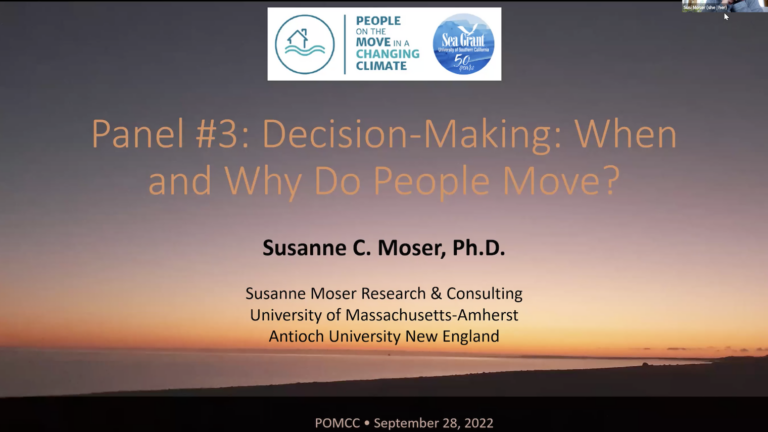PEMOCC Southwest Workshop
Overview

Meeting Purpose & Objectives
Despite the increased reference to the link between climate change and human mobility (which includes displacement, migration, and planned relocation), there is a dearth of knowledge on how shifts in population patterns intersect with underlying socioeconomic, cultural, political, and environmental processes and resources that either enable or constrain the ability of people to cope where they are or force them to move due to lacking support or constrained resources. As part of an NSF Coastlines and People (CoPe) Research Coordination Network (RCN) grant entitled “People on the Move in a Changing Climate (PEMOCC)” led by the Georgia Sea Grant Program, the Southwest Region Project Team convened a virtual workshop on September 27-28, 2022, to facilitate a discussion among experts and stakeholders for the identification of the scientific infrastructure that is required to conduct place-based, use-inspired collaborative research on climate-induced human mobility and regionally tailored educational and engagement strategies.
The goals of the workshop were to feature:
- The current state of knowledge on climate-induced human mobility;
- Local, regional, and international case studies; and
- Unique needs of the underserved and underrepresented coastal communities.
In order to create:
- Data and research gap analyses;
- Framework (possibly developing scenarios) for conducting use-inspired research;
- Education and engagement for building community resilience and climate adaptation; and
- Networks of interdisciplinary and diverse researchers engaged in the study of climate-induced human mobility.
Meeting Summary
A report summarizing this workshop, including the research needs identified, is available on our main PEMOCC page.
The PEMOCC Southwest workshop addressed a variety of themes related to climate-induced human mobility, with panel discussions on communication, policy, environmental justice, receiving communities, and decision-making. A core theme through the workshop echoed by both speakers and participants was the importance of personal experiences in these conversations.
Over 60 participants represented 53 organizations that ranged from academic institutions, city/local governments, state agencies, federal agencies, community-based/non-profit organizations, private industry, and journalism.
Meeting Resources
- Post-Workshop Resource List: Click here to explore the resources shared by panelists and participants in the workshop
- Meeting Agenda: To download a PDF of the agenda, click here.
Meeting Videos (Day 1)
Description: Listen to an overview of current coastal hazard projections and research pointing towards the need to study climate-induced human mobility in California and the U.S. Southwest
Speaker: Dr. Juliette Hart (Pathways Climate Institute)
Keynote: Rising Together
Description: This keynote presentation focused on managed retreat, agency, & the art of listening.
Speaker: Elizabeth Rush *Video was available until 10/14/22*
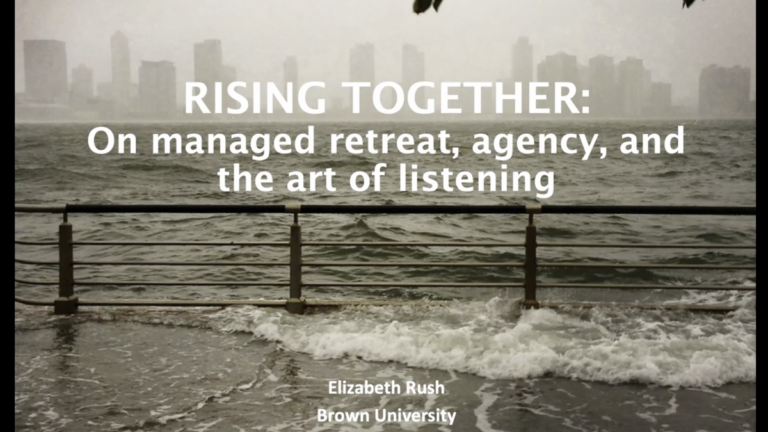
Description: Listen to this panel to learn about case studies of impacted communities from an academic and research perspective
Speakers: Dr. Elizabeth Koslov (UCLA), Dr. Maxwell T. Boykoff (University of Colorado, Boulder), and Dr. Jessica Ruvinsky (Bellwether Collaboratory)
Description: Watch this panel and listen to a snapshot of current policies, practices, and guidelines shaping climate-induced human mobility today and in the future
Speakers: Carrie Rosenbaum (Chapman University), Dr. Charles Lester (UC Santa Barbara), and Dr. Robin Craig (USC)
Meeting Videos (Day 2)
Description: Watch this panel and listen to a discussion of factors leading to disproportionate climate-induced human mobility and disproportionate impacts of climate-induced migration
Speakers: Gabrielle Crowe (Gabrielino-Shoshone Tribal Council), Dr. Idowu Jola Ajibade (Portland State University), Effie Sanders (USC/California Coastal Commission), and Dr. Santina Contreras (USC)
Description: Watch this panel to listen to a discussion examining how to prepare and support communities slated to receive climate migrants.
Speakers: Gwen Shaughnessy (NOAA), Alice Kaswan (University of San Francisco), Dr. Hannah Teicher (Harvard University), and Dr. Kathryn McConnell (Brown University)
Description: Watch this panel and listen to an overview of how and why individuals and/or communities decide to move and of existing decision-making strategies and resources
Speakers: Dr. Susanne Moser (Susanne Moser Research and Consulting), Dr. A.R. Siders (University of Delaware), Dr. Joe Arvai (USC), and Kelly Leilani Main (Buy-in Community Planning)
Stay Connected
- To learn about the National PEMOCC initiative, click here. To get involved and stay up to date on the national PEMOCC network’s activities, please fill out the interest form on the national PEMOCC website.
- To share any post-workshop thoughts or questions that you didn’t get to discuss, please share with us via this form.
- For any additional questions or comments, please contact Karina Alvarez at karinaa9@usc.edu.
Organizers
This workshop was organized by the University of Southern California Sea Grant Program in coordination with the PEMOCC Regional Coordination Network. PEMOCC is supported by the National Science Foundation under Grant No. (1940082). Any opinions, findings, conclusions, or recommendations expressed on this website are those of the authors and do not necessarily reflect the views of the National Science Foundation.

Contact Us
Stay Connected
Join our mailing list to receive USC Sea Grant’s monthly Urban Mariner e-newsletter, as well as periodic information on funding and fellowship opportunities, AdaptLA, and our Urban Tides Initiative.
USC Sea Grant
University of Southern California Sea Grant
3454 Trousdale Pkwy, CAS 200
Los Angeles, CA 90089-0153
(213) 740-1961
seagrant@usc.edu
For More Information
If you’re looking for something and can’t find it, please don’t hesitate to contact us.

